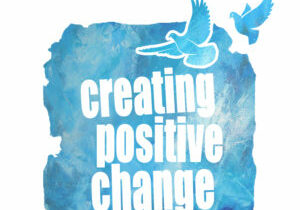67% of people who work with a career coach say they are more confident in their career decision-making
How to Find a Good Career Coach
Finding a reputable career coach or counselor can be a pivotal step in achieving your professional goals and finding fulfillment in your career. Here are five essential tips to help you find the right one:
- Specialization: Seek a career coach who specializes in your industry or career field. A coach with industry-specific knowledge can provide insights and strategies tailored to your unique challenges and opportunities.
- Track Record: Look for a career coach with a proven track record of success. Ask for specific examples of how they've helped clients achieve their career goals, such as securing a job, advancing in their current role, or launching successful businesses.
- Alignment with Values: Ensure that the career coach aligns with your values and career aspirations. A coach who shares your values and understands your career vision can provide more meaningful guidance and support.
- Customized Approach: Choose a coach who offers a personalized approach rather than a one-size-fits-all solution. Effective career coaching involves tailoring strategies and advice to your individual strengths, weaknesses, and goals.
- Communication Skills: Assess the coach's communication skills during an initial consultation or interview. A good career coach should be an active listener, empathetic, and able to provide constructive feedback in a supportive manner. Effective communication is crucial for a successful coaching relationship.
Ultimately, the right career coach should not only have the qualifications and experience but also be someone you feel comfortable working with and trust to guide you towards your career aspirations.


What is Career Counseling? What can a career counselor do?
Career counseling encompasses a wide range of aspects and services aimed at helping individuals make informed and fulfilling career decisions. In addition to the previously mentioned areas, here are some other aspects of career counseling:
- Self-Assessment: Career counselors often use assessments and tools to help individuals better understand their strengths, interests, values, and personality traits. This self-awareness is crucial for making informed career choices.
- Career Exploration: Career counselors assist clients in exploring various career options by providing information about different industries, job roles, and career paths. They may help clients research and evaluate potential career choices.
- Decision-Making Support: Career counselors guide clients through the decision-making process, helping them weigh the pros and cons of different options and make well-informed career decisions.
- Education and Training Guidance: Career counselors can provide information about educational and training programs, including college degrees, certifications, and vocational training, necessary for pursuing specific career goals.
- Work-Life Balance: Some career counseling sessions focus on achieving a healthy work-life balance. Counselors help clients set boundaries, manage stress, and prioritize personal well-being alongside career goals.
- Career Transition Support: For individuals undergoing career transitions, such as returning to work after a hiatus or switching careers, career counselors provide support in adapting to the changes and developing a plan for success.
- Job Satisfaction and Fulfillment: Career counselors work with clients to identify factors contributing to job satisfaction and fulfillment, helping them align their careers with their personal values and life goals.
- Retirement Planning: In later stages of one's career, career counselors can assist with retirement planning, helping individuals transition smoothly into retirement and explore opportunities for post-retirement engagement.
- Workplace Conflict Resolution: Career counselors may provide strategies for resolving workplace conflicts, improving communication with colleagues and supervisors, and addressing issues affecting job satisfaction.
- Professional Development: Career counseling often involves setting and achieving professional development goals, whether it's acquiring new skills, certifications, or pursuing advanced degrees.
These aspects of career counseling collectively aim to empower individuals to make informed career decisions, maximize their career potential, and find satisfaction and fulfillment in their chosen paths. The specific focus of career counseling sessions may vary depending on the individual's needs and goals.


























